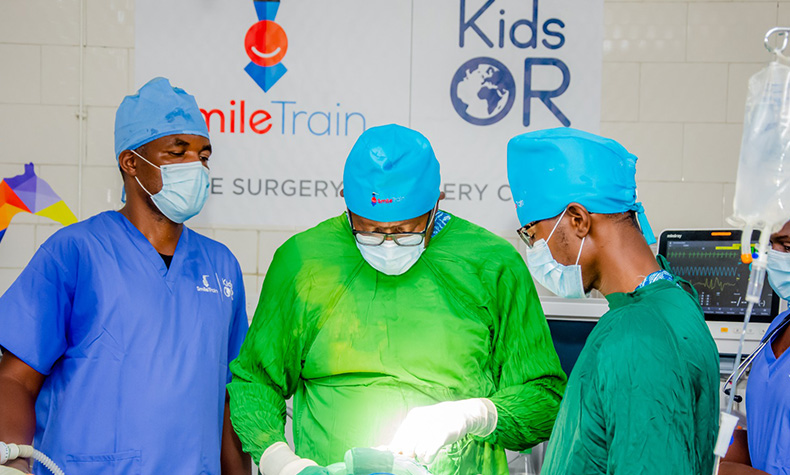Reducing carbon footprints with solar-powered paediatric
- Posted on 06/05/2024 18:32
- Film
- By abelozih@sante-education.tg

Extract from the article: Smile Train, the world's largest cleft charity, and Scottish charity Kids Operating Room are working to improve human health and tackle the proliferation of greenhouse gases. As part of the commemoration of Earth Day, the two organisations have set t
Smile Train, the world's largest cleft charity,
and Scottish charity Kids Operating Room are working to improve human health
and tackle the proliferation of greenhouse gases. As part of the commemoration
of Earth Day, the two organisations have set themselves the target of tackling
the twin challenges of greenhouse gas emissions from operating theatres while
prioritising paediatric surgery through the installation of solar powered
surgical systems.
Power cuts in African hospitals can have a serious
impact on patient care, with many hospitals suffering hundreds of hours of
power cuts every month. In some cases, these power cuts last several
days.Operating theatres are also a major source of greenhouse gas emissions for
hospitals when operating at full capacity. Ms Nkeiruka Obi, Smile Train's Vice
President and Regional Director for Africa, pointed out that this solution is
beneficial for access to essential surgical care and for reducing the carbon
footprint.
« The
daily consumption of medical equipment is 1.5 kw/h, and the new system can last
up to 6 hours, saving 1.5 tonnes of CO2 per year. This system improves our
surgical infrastructure and access to critical care. The back-up systems allow
our surgical teams to carry out their treatments without fear. It also reduces
the carbon footprint of the operating theatre, which draws its power from the
grid and relies on diesel generators. Greening our paediatric operating
theatres is a win-win situation: while saving lives, we are also protecting our
planet», said Ms Obi.
Kids Operating Room conducted a pilot study in
2023 in four hospitals in the Democratic Republic of Congo, Tanzania, Zimbabwe
and Nigeria, which had some of the worst power cuts.
Of the four sites, the Democratic Republic of
Congo had the longest average outage time (176.7 minutes) and lost the most
time to power cuts during the trial.Nigeria came second, with more frequent
outages than any of the other hospitals, although the average duration of power
cuts was shorter (96.01 minutes).Zimbabwe and Tanzania fared better, but still
lost a lot of time to power cuts, with Zimbabwe losing more than two days in
total during the trial.The pilot study, which lasted 31 days, reduced CO2
emissions by 1,104.84 kg. It is predicted that 13 tonnes of CO2 will be reduced
in just one year as a result of the pilot study. This pilot project
demonstrates the reduction in the carbon footprint and the savings made on the
hospital's operating costs.
Following the success of the pilot project, the
two charities will roll out the solar surgery facilities across 40 paediatric
operating theatres by 2025. Smile Train
and KidsOR are working together in countries around the world to increase
capacity for safe paediatric surgery, including life-saving cleft lip and
palate surgery.
A major player in supporting children with clefts,
Smile Train provides local healthcare professionals with the training, funding
and resources to offer free comprehensive cleft surgery and care to children
around the world.Its partner, Kids Operating Room, is a global health NGO that
works directly with local surgeons and their teams across Africa and South
America.It also funds the training of surgeons and anaesthetists in patient
care.
Jean ELI




